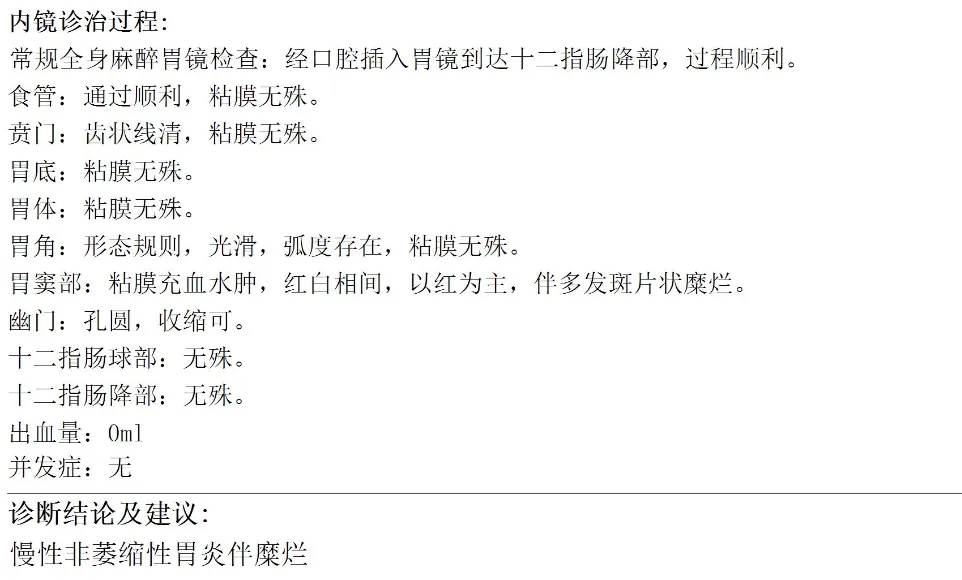The Long Road to Treating Chronic Gastritis
Since childhood, my digestive system has always been delicate. Throughout elementary, middle, and high school, I saw countless doctors and took endless medications, but my stomach never truly got better. If I ate anything cold or spicy, I’d get bloated, suffer acid reflux, get nauseous, and sometimes even vomit. Even on a healthy diet, stressful situations—like exams or interviews—would trigger my nausea.
Miraculously, almost all these symptoms vanished during my undergraduate years. I could eat whatever I wanted—cold, spicy, you name it. I even drank heavily without any problems. It was a miracle!
But after entering the workforce, my lifestyle got even more chaotic. My company had flexible morning hours, so I’d stay up insanely late—almost never going to bed before 3am for three years straight. I drank almost every day. At first I’d mix vodka with juice—around 10–15% ABV—but as my tolerance grew, that wasn’t enough anymore. Eventually, I started drinking whisky straight—about 150ml to 300ml daily—for another two years.
I have to admit, my liver is a real tough guy.
In the end, it wasn’t my liver that gave in—it was my stomach. About a month and a half ago, I started to feel constantly nauseous, dizzy, and suffered from acid reflux, especially after meals. I’d throw up soon after eating, and lost almost 5kg (10lbs) in just two weeks. All that anxiety—plus doom-scrolling online for medical advice—was terrifying. I just couldn’t take it anymore, so I had two gastroscopies back-to-back. (Side note: I have to complain about the wait times for major hospitals in big cities. At Zhejiang First Hospital, getting a gastroscopy appointment usually takes half a month, and don’t even think about getting a weekend slot. I ended up rushing home to get it done locally, and then had another one when I returned.)

Thankfully, I didn’t have H. pylori, but dealing with chronic gastritis with erosion was more torturous than I’d imagined.
The doctor prescribed three medications: Esomeprazole enteric-coated tablets, teprenone capsules, and trimebutine maleate dispersible tablets—two weeks’ worth.
For those two weeks on medication, I felt amazingly comfortable—no discomfort at all and every meal tasted great. Only later did I realize it was the esomeprazole suppressing my stomach acid and masking the symptoms entirely. But once I stopped taking the meds, things took a turn.
There wasn’t a dramatic rebound, but my stomach (upper left quadrant) had this nagging presence—not pain, but definitely noticeable. It was a constant reminder, sometimes making me irritable. And since the stomach is so linked to emotions, well… you get the idea.
Time to make some changes!
Here’s my current approach:
- Get up early every day (by 8) and eat breakfast. My company’s breakfast options are pretty good—usually a boiled egg, a bowl of porridge, and some buns or similar.
- Drink “Kangfuxin” solution (giant cockroach extract, yes really) three times a day to help repair the gastric erosion. Weirdly, it doesn’t taste as bad as I’d imagined. Aside from being overly sweet, once you get over the mental block, it’s actually not too bad.
- Take vitamin B complex and vitamin C whenever I remember—pretty casually, nothing too strict.
- Drink yogurt about an hour after lunch. Can’t confirm if this helps yet because I bought the wrong kind… ended up with “Bright” brand yogurt drink instead of proper yogurt, and now I have a whole box of it. 😭
- Go to bed earlier—ideally before 1am (which still isn’t exactly “early”).
- No alcohol.
Let’s see how it goes. I’m not being super strict with my diet, but hopefully after a few months of these habits, my stomach will finally heal.